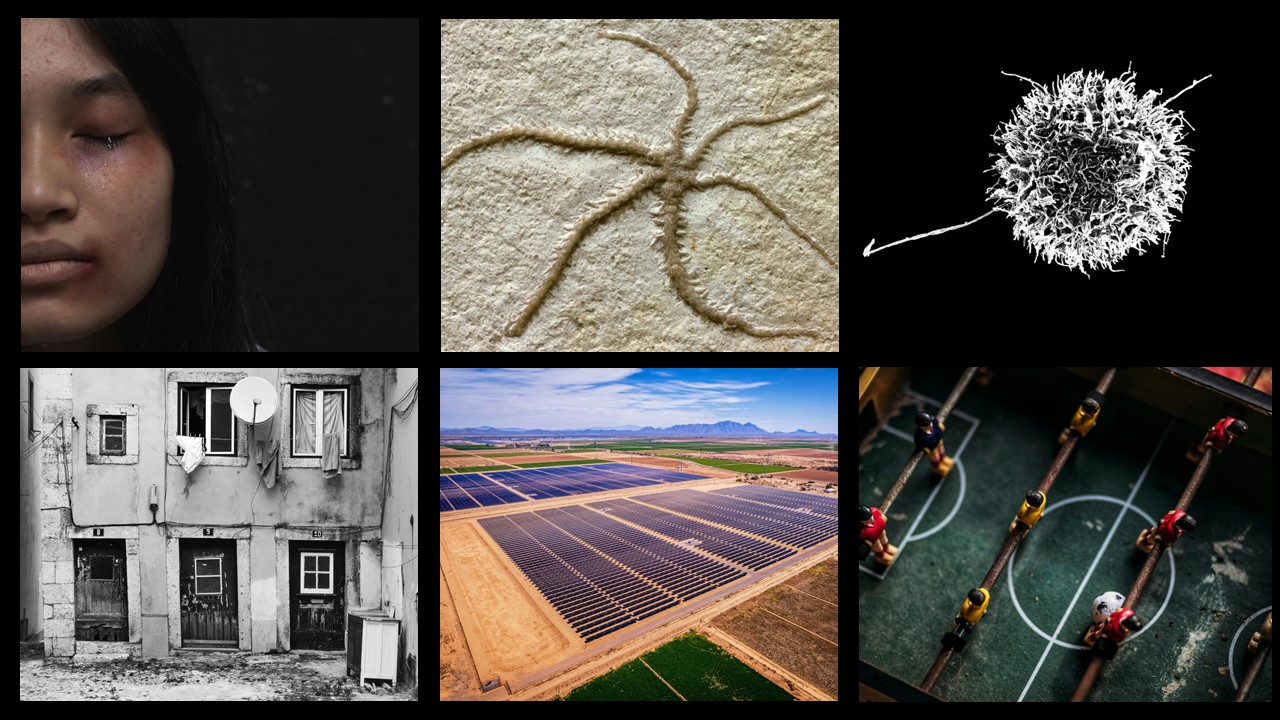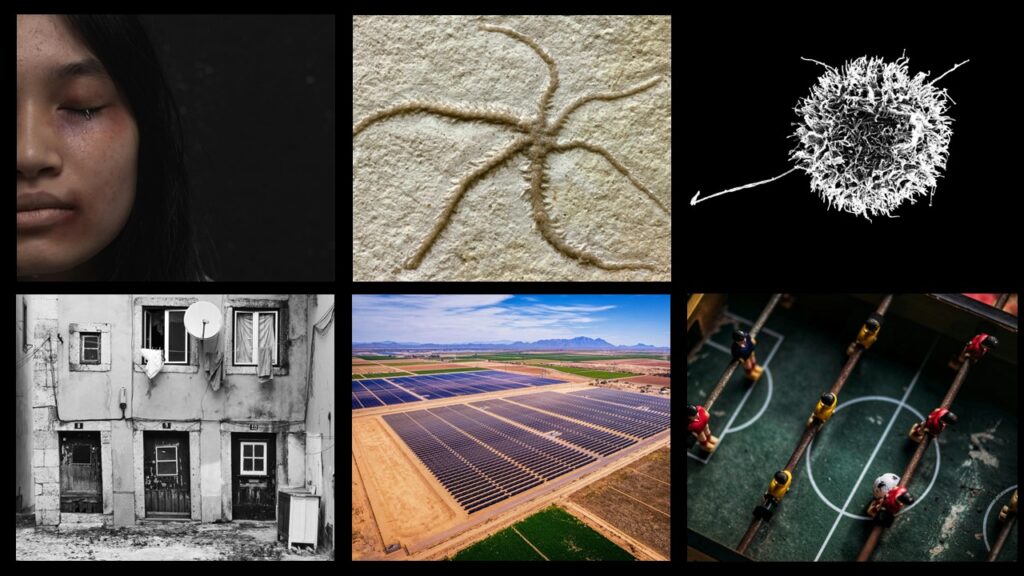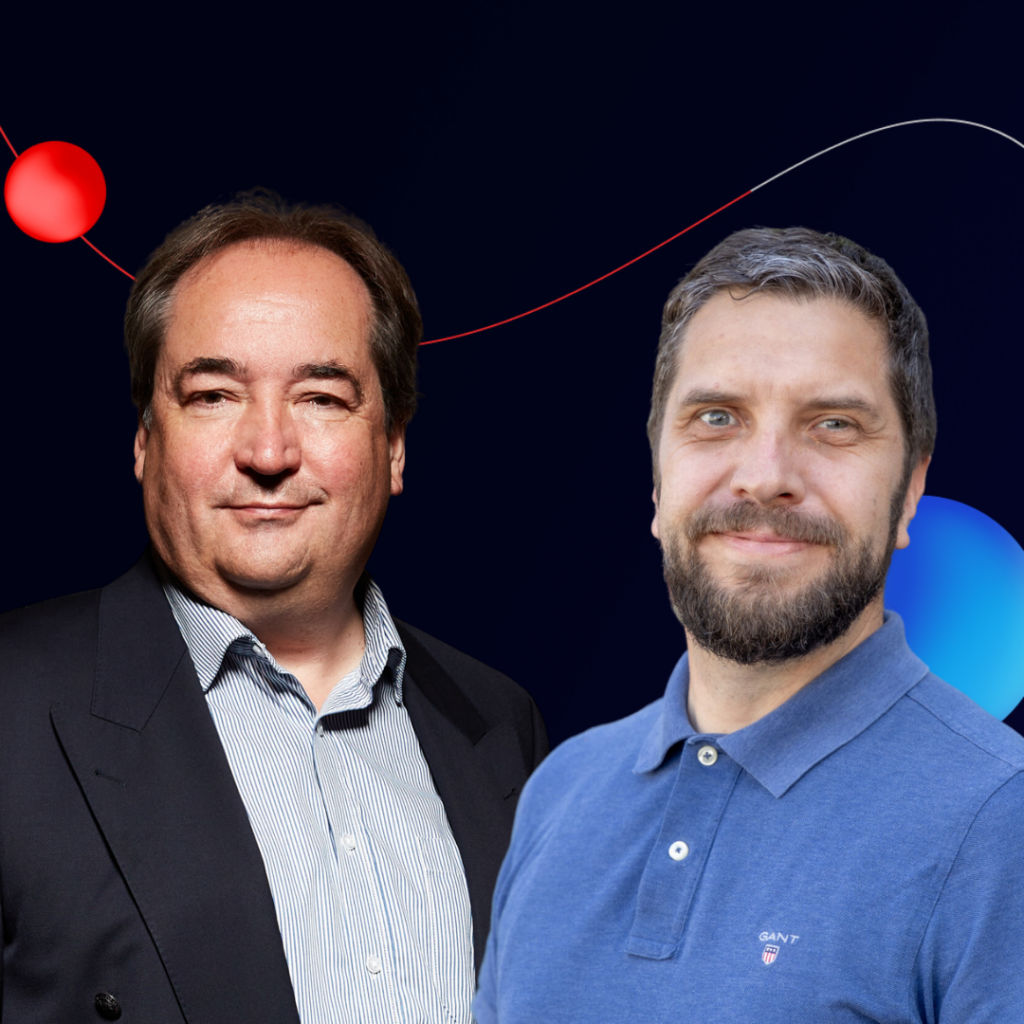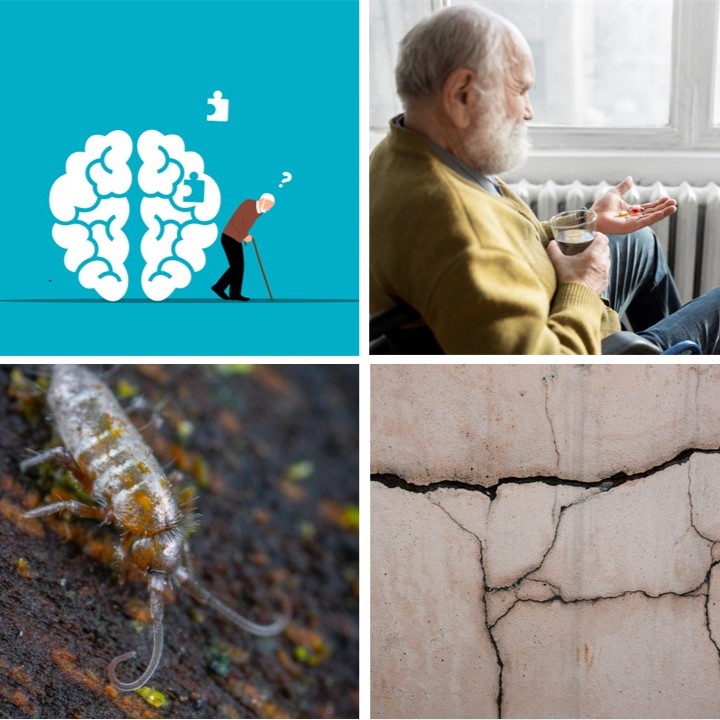10 selected Research Luxembourg results – June 2024
04 July 2024

Luxembourg News in Science & Research
A beneficial gut bacterium which can become our enemy; Machine Learning to predict Euro 2024 results; A voice analysis technology to revolutionize respiratory health monitoring; Improving solar panels’ performance: here are the latest scientific news from Luxembourg
Diane Bertel; NIAID 2.0 Generic; Pexels; Flickr
This article was originally in French and German on science.lu
Friend or Foe: How Diet Can Transform an Intestinal Bacterium
Luxembourg Institute of Health (LIH)
Friend or foe? A new study reveals the two faces of a human gut bacterium called Akkermansia muciniphila, considered a potential probiotic. A probiotic is a living microorganism (bacteria or yeast) that might have a beneficial effect on human health, although scientific studies are still lacking to confirm this with certainty.
The research team examined which bacteria present in the gut could potentially promote an infection, and how the interaction between the bacterium and the pathogen is influenced by dietary habits. Their research shows how A. muciniphila can either strengthen or weaken the gut’s defenses against harmful bacteria depending on dietary fiber intake.
Such results highlight the importance of diet, as this gut-friendly bacterium synergizes with (i.e., enhances) pathogens in the context of a low-fiber diet. Therefore, it is essential to consider a holistic approach when designing probiotic treatments.
To the press release / To the publication
Can We Predict Which Team Will Win Euro 2024?
University of Luxembourg – Faculty f Science, Technology and Medicine (FSTM)
Scientists from the University of Luxembourg, with the help of artificial intelligence, have developed a machine learning system to predict which team has the highest chances of winning – in this case, the French team – though it is not an absolute certainty!
How? Three complex statistical models evaluate the strengths of the teams and individual players, using data such as match history, odds from 28 bookmakers (gambling establishments), and player ratings, based on the individual performances of local clubs and national teams. Then, an AI model was trained on the results of UEFA Euro tournaments from 2004 to 2020 to determine the best way to combine the results of these statistical models.
The researchers were thus able to predict the results of Euro 2024: they simulated the tournament 100,000 times (!) and calculated for each team the percentage of times it emerged as the winner. Their model gives France a 19.2% probability of victory. England follows closely with 16.7%, and the host country, Germany, has a 13.7% probability of winning the cup. We just have to wait for the final match!
To the press release / To the publication
Starfish Have Been Reproducing by Splitting in Two for at Least 155 Million Years!
National Museum of Natural History (MNHN)
Some starfish and brittle stars can reproduce by splitting in two and regrowing the missing parts. While this process, called clonal fragmentation, is well understood biologically, its evolutionary origins have long remained a mystery.
The work of Ben Thuy and an international team of researchers led to the discovery of a remarkably well-preserved brittle star, 155 million years old, in the midst of regeneration.
This fossil provides solid evidence that this fascinating method of reproduction dates back a long way, specifically to the Jurassic period.
A Voice Analysis Technology Made In Luxembourg Revolutionizes Respiratory Health Monitoring
Luxembourg Institute of Health (LIH)
A new vocal biomarker developed by the Luxembourg Institute of Health (LIH) allows remote assessment of patients’ respiratory health, complementing traditional questionnaires.
Vocal biomarkers are vocal characteristics derived from voice samples analyzed by artificial intelligence algorithms, enabling the evaluation of symptoms in patients. The Colive Voice study, an international research program, focuses on utilizing voice recordings to improve health diagnosis and monitoring. By collecting these recordings along with comprehensive health data, the study aims to develop cutting-edge health tools.
This innovative technology, requiring only a smartphone to record the voice, offers a non-invasive, cost-effective, and efficient solution for assessing respiratory health. Telemedicine will also be facilitated by rapid, real-time assessments of patients’ conditions, providing valuable support during times of healthcare system strain.
To the press release / To the publication
Can the Performance of Thin-Film Solar Panels Be Improved?
University of Luxembourg – Faculty f Science, Technology and Medicine (FSTM) ; Luxembourg Institute of Science and Technology (LIST)
Will it soon be possible to enhance the efficiency of thin-film solar panels? A recent study from the University of Luxembourg proposes a groundbreaking structure by adding a specific functional layer that keeps electrons away from the metal contact while allowing electric current to pass through.
Currently, thin-film solar cells have a flaw: electrons generated by light are lost at the surface of the metal in the solar panels. Manufacturers have solved this issue for traditional solar cells by placing a perforated oxide layer (the insulating oxide layer needs an electrical contact with the silicon, hence the laser perforation) between the active part of the solar cell and the metal contact, but the problem remained unresolved for thin-film solar cells.
Solar panel technology is based on converting solar energy – photons – into electrical energy.
To the press release / To the publication

What is the Poverty Rate in Luxembourg?
The latest results from the survey on the income and living conditions of resident households confirm the trend of worsening financial difficulties, according to STATEC.
Despite the increase in household income, the risk of poverty rate has risen and is approaching 19% of the population in 2023 (compared to 17% in 2022). Among the groups particularly exposed to the risk of poverty are families with children under 18 and single-parent households.
More than 30,000 Luxembourgish children, or about one in four, are at risk of poverty. These children live in households where the standard of living is below 2,400 EUR per month per adult. In comparison, the risk of poverty is 11% for people aged 60 or older.
NK Killer Cells: Essential Allies in Cancer Therapy
Luxembourg Institute of Health (LIH)
A publication by the Luxembourg Institute of Health (LIH) sheds light on the antitumor function of NK (Natural Killer) cells, which are lymphocytes (cells of our immune system) that help eliminate viruses and cancer cells.
Their work provides a better understanding of the role of a protein called DOT1L, a key enzyme in the development and function of immune cells. DOT1L maintains the function of the immune system’s natural killer (NK) cells, ensuring optimal control of cancer cells.
These findings have important implications for understanding the functioning of NK cells and could inspire new approaches to preserving their antitumor function in cancer immunotherapy.
What is the Extent of the Emotional Impact Following Violent Acts?
The emotional impact on victims of violence is more significant than the suffering caused by their physical injuries. This is the result of a recent publication by STATEC.
Indeed, 61% of victims of violent acts report feeling a loss of confidence, a sense of vulnerability and insecurity, and 69% of female victims even experience fear, anxiety, or panic. For more than 22% of victims aged 16 to 34, these violent acts have led to sleep or eating disorders, as well as social isolation for 17% of them.
This is particularly important in the context of the long-term management of the psychological consequences of violent acts, which can sometimes be very debilitating for the victims and have serious physiological repercussions.
Kidney Vetch: An Astonishingly Resilient Plant
National Museum of Natural History (MNHN)
Plant species widely distributed across Europe, both at high and low altitudes, adapt to their environment by expressing different reversible phenotypes (physical characteristics) and can genetically differentiate to locally adapt to various conditions. Two researchers from the National Museum of Natural History (MNHN) recently published an article on kidney vetch (Anthyllis vulneraria), a plant with pretty yellow flowers that is widespread in Europe.
By taking various specimens growing in different environments along both south-north and altitude gradients and allowing them to grow in the same controlled environment, they were able to highlight the genetic and phenotypic adaptability of this plant.
However, some specimens showed less flexibility, making them more sensitive to environmental changes. The researchers point out a risk for these specimens related to climate change.
To the press release / To the publication
New Series of Publications on Inequality, Poverty, and Precarity
Luxembourg Institute of Socio-Economic Research (LISER)
A series of policy briefs by LISER on inequality, poverty, and precarity succinctly and accessibly informs about research findings on these essential societal themes.
The first publication has just been released and addresses precarity and the (non-)use of financial aid in Luxembourg. The authors suggest ways to combat poverty and encourage the use of financial aid, including revising income thresholds, simplifying access to social grocery stores, improving the financial accessibility of healthcare, and fostering a critical societal reflection on stereotypes related to social aid recipients.
Since its inception, LISER, along with national and international partners, has conducted in-depth research on inequality and poverty, examining their complexity and impact on individuals and society, both in Luxembourg and abroad.
To the publication (in French)
Author: Diane Bertel
Editor: Lucie Zeches (FNR) ; Hélène Jacuszin (Research Luxembourg)








